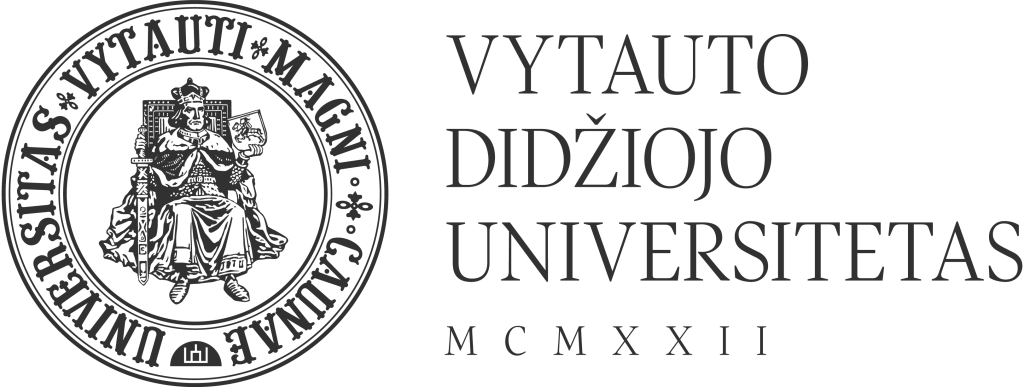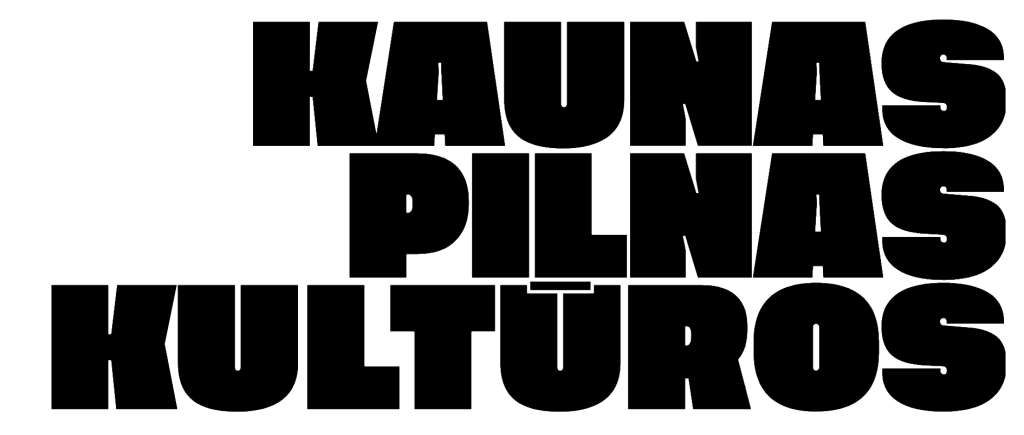Asmens duomenų apsauga
Filming and Photography at Museum Events
Filming and photography during events organised by the Kaunas City Museum (hereinafter referred to as the Museum) are carried out for the Museum’s representational, activity-promoting, and advertising purposes.
The controller of personal image data (video recordings or photographs) collected during the Museum’s events is the Museum.
Video recordings and/or photographs taken during an event may be published and live-streamed on the Museum’s social media networks (Facebook,Instagram,Twitter,YouTube) on itswebsiteas well as in other advertising or information media.
Should a Museum visitor notice that they are being filmed (photographed) against their will while attending an event, they have the right to express this to the individual capturing their image. The Museum visitor’s wishes in this matter are always respected (unless the recorded information helps to reveal violations of the law).
If a Museum visitor wishes for their image to be removed from the Museum’s communication channels (i.e., the aforementioned social media channels or the Museum’s website), they should first contact the Head of the Museum’s Communications Department to request the image’s removal.
Collected image data is stored on the Museum’s hard drive for 3 years from the date of their creation.
Website Terms of Use and Privacy Policy
General provisions
Website kaunomuziejus.ltThe terms of use and privacy policy of the kaunomuziejus.lt website (hereinafter referred to as the Website) determine the conditions and procedures for using the Website and the basic principles for the collection, processing, and storage of personal data, based on which the Website controller – Kaunas City Municipality’s budgetary institution Kaunas City Museum, with the legal entity code 300154670, registered at L. Zamenhofo St. 8, Kaunas, LT-44287, and with the email address:muziejus@kaunomuziejus.lt (hereinafter referred to as the Museum) – shall process the personal data of Website visitors (hereinafter referred to as the User)
By accessing the Website, the User confirms that they unconditionally accept these terms and conditions and undertake to comply with them. By accessing the Website and/or using it, the User confirms that they are duly familiar with the terms and agree that the Museum will process the information provided by the User (including personal data) in so far as it is necessary for the management and operation of the Website and for the provision of the Website’s services.
The Website Services are services associated with informing customers and presenting customer information (hereinafter referred to as Website Services), which include:
- information about the Provider’s services;
- processing submitted queries or other information and/or booking services electronically;
- any other services provided through the Website.
What information about the User is collected and for what purpose?
The Museum processes the following categories of the User’s personal data:
- contact data: email address, phone number, address, etc.;
- digital (statistical) data: cookies, IP address, use of websites and social networks, and other publicly available online data.
Continuously improving the website, the Museum aims to make it as simple and convenient to use as possible. To achieve this, it is essential to know what information most interests visitors to the Museum’s website, which browsers they use, what content they are interested in, etc.
How does the Museum obtain the User’s data?
Information is obtained from the following sources:
- communication with the User by phone or email;
- from the Museum’s internal databases;
- from queries to various external databases (as specified below).
Information is collected using Google Analytics tools, which allow recording and analysis of how visitors use the Website. More about Google Analytics and the information that can be collected with the help of these tools can be foundhere.
Should the User wish to prevent Google Analytics tools from capturing information about their web browsing, they can use the Google Analytics Opt-out Browser Add-on.
The legal basis for processing the aforementioned information lies in the Museum’s legitimate interest in ensuring and improving the Website’s functionality and the accessibility of the information provided.
Cookies
The Museum uses cookies to enhance user experience on the Website, making it faster and more convenient. cookies). Cookies are small text files that are saved on your device when you visit a website. It allows the Website to remember the User’s actions and preferences (such as username, language, font size, and other display options) for a certain period of time without the User having to re-enter them each time they visit the Website or navigate through its various pages. Cookies also help with the collection of statistical data about traffic to the Website.
Cookies are only saved if the User confirms their content in a pop-up message on the website, with the exception of cookies that are essential for the provision of Museum services.
The Museum’s website uses cookies to:
- guarantee the website’s essential functioning;
- recognise returning visitors;
- determine whether the User has consented to cookies being stored on their device;
- monitor User’s behaviour and preferences in order to improve the website’s content.
The legal basis for using cookies lies in the Museum’s legitimate interest in ensuring the website’s technical functionality. When cookies are used for the purposes of remembering the User’s preferences, statistical analysis, and selection of useful information, the legal basis is provided by the User’s consent.
How can cookies be disabled and prevented from being collected further?
Most browsers are set to accept cookies by default. Users can disable cookies and thereby retract their consent at any time, but doing so will reduce the functionality of the Museum’s website, which may not function as it did prior to the refusal.
All modern web browsers allow users to change their cookie settings. These settings can usually be found in the browser’s Settings, Internet Optionsmenu. However, disabling cookies may require the User to manually adjust some preferences on each subsequent visit and some services or functions may stop working.
Cookie settings onInternet Explorer
Cookie settings onSafari web andiOS.
More information on how to cookies can be removed, as well as other useful information relating to the use of cookies, can be found at http://www.allaboutcookies.org/.
Direct marketing
If a User has not objected to receiving news and offers to their email address or has subscribed to newsletters on the Museum’s website or Facebook page and consented to receiving them, the Museum may send them the latest information on projects, events, special offers, services, and other relevant Museum news. The Museum will also collect statistical data on whether the User opens the email newsletter and information about the User’s device
he legal basis for sending these messages is the Museum’s legitimate interest in promoting its projects, events, special offers, and services to customers, as well as the User’s consent.
Users have the right to opt out of direct marketing messages at any time.
For how long is User information stored?
The Museum shall cease to process data for the aforementioned purposes for which the User’s consent is required, or may be withheld, after the User’s consent has been withdrawn (from the moment the User expresses their refusal to give consent).
Statistical information collected by Google Analytics tools and other cookies is generally used for up to 3 years. Since some of this information can only be deleted by the Museum’s partners, they determine the time limits for data storage.
Cookies are usually stored on your devices for up to 3 years.
All User data collected by the Museum for the aforementioned purposes (and using the methods listed above) is stored by the Museum as long as the User is active. If the User is inactive and does not withdraw their consent, the Museum shall retain the User data for 3 years, after which the User data shall be securely removed from the Museum’s systems.
How can I access my data?
f the User wishes to know what data the Museum has collected about them, they can contact the Museum via email:muziejus@kaunomuziejus.lt. By emailing this address, Users can request for their data to be corrected or deleted, and can restrict the processing of their data, withdraw their consents, object to the processing of their data carried out on the grounds of the Museum’s legitimate interest, object to the processing of their data for direct marketing purposes and, where applicable, exercise their right to data portability.
Intellectual property protection and links to external websites
All rights to the Website and its content are protected by the laws of the Republic of Lithuania and other legal acts. It is strictly forbidden to copy texts, photos, logos, banners, and all other design elements for commercial or other purposes that infringe on the rights and legitimate interests of the Museum or third parties.
All trademarks presented on the Website are the property of the Museum or are used by the Museum in a lawful manner, on the basis of agreements concluded with the trademark owners.
This Website may contain links to other websites, allowing the User to leave the Website in order to access third party information, or third party information may be presented on this Website.
The Museum cannot change, update, or control the content of such websites and accepts no responsibility for the accuracy of the content presented therein.
The User should note that other Websites accessed via links from this Website may apply different terms of use, privacy policies, provisions relating to confidentiality and processing of personal data, and contain other provisions which differ from those in force on this Website.
Rights and obligation of the Museum and the User
The Museum reserves the right to modify the Services provided on the Website or the specific terms thereof at any time without notice to the User.
The Museum may terminate or fully suspend the Website’s operation at any time without prior notice.
By using the Website and/or the services provided by the Museum, the User must:
- comply with the procedures and requirements set out in these Terms and Conditions;
- not violate the rights and legitimate interests of the Museum and third parties;
- not provide false and/or misleading information about themselves or other incorrect information;
- use only secure means and devices for electronic communications and data transmission;
- not spread computer viruses and/or take any other measures that could disrupt the Website’s operation, damage or destroy information, and/or cause any other damage to the Website or to the process of services provided by the Museum;
- not take any deliberate action that would disrupt the Website’s operation and the provision of the Website’s or the Museum’s services to the User or third parties;
- respect and not violate the established and socially accepted norms of conduct and morality, the rights and legitimate interests of third parties and legal requirements.
Should the User violate any of these Terms and Conditions, the Museum shall have the right to restrict the User’s ability to use the Website in any way, in whole or in part, at any time.
How can the User report a violation of their rights?
If the User believes their privacy rights may have been violated, they can file a complaint with the State Data Protection Inspectorate at the address: A. Juozapavičiaus str. 6, LT-09310 Vilnius; by phone: (8 5) 271 2804 or 279 1445; by fax: (8 5) 261 9494; or by email:ada@ada.lt.
Changes to the Terms and Conditions and final provisions
The Museum has the right to unilaterally change the Terms and Conditions by announcing them on the Website. Changes to the Terms and Conditions shall enter into force on the date of their publication on the Website. If the User continues to use the Website services after changes or additions to the Terms and Conditions, the User shall be deemed to have accepted the new revised version of the Terms and Conditions.
All disagreements and disputes shall be settled by negotiation. In case of failure to reach an agreement, disputes shall be resolved in accordance with the laws of the Republic of Lithuania.


